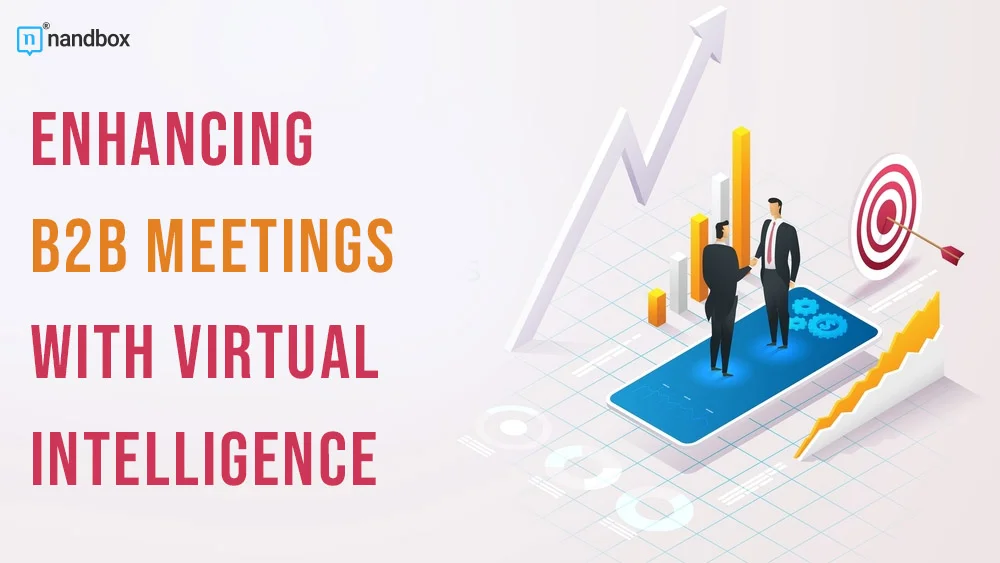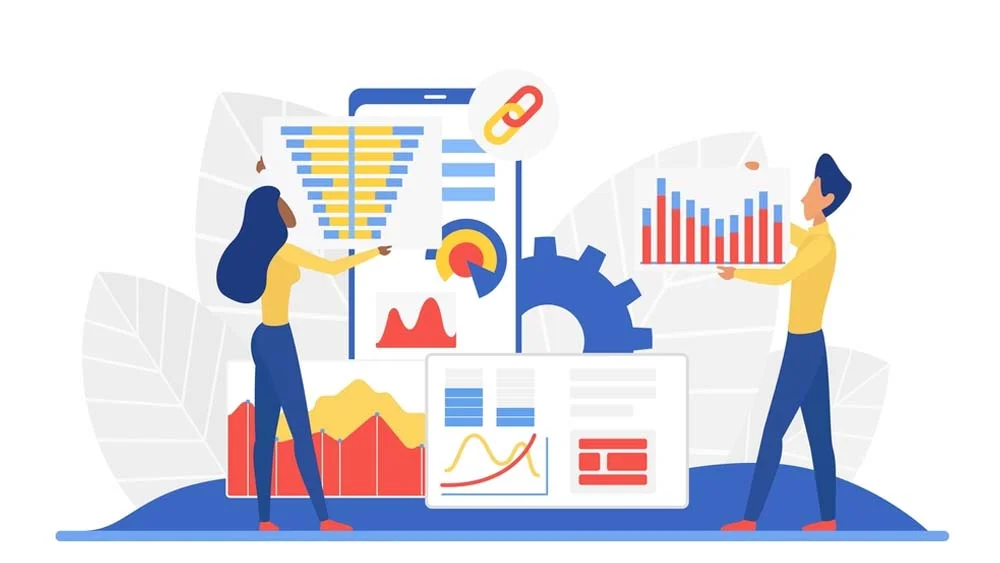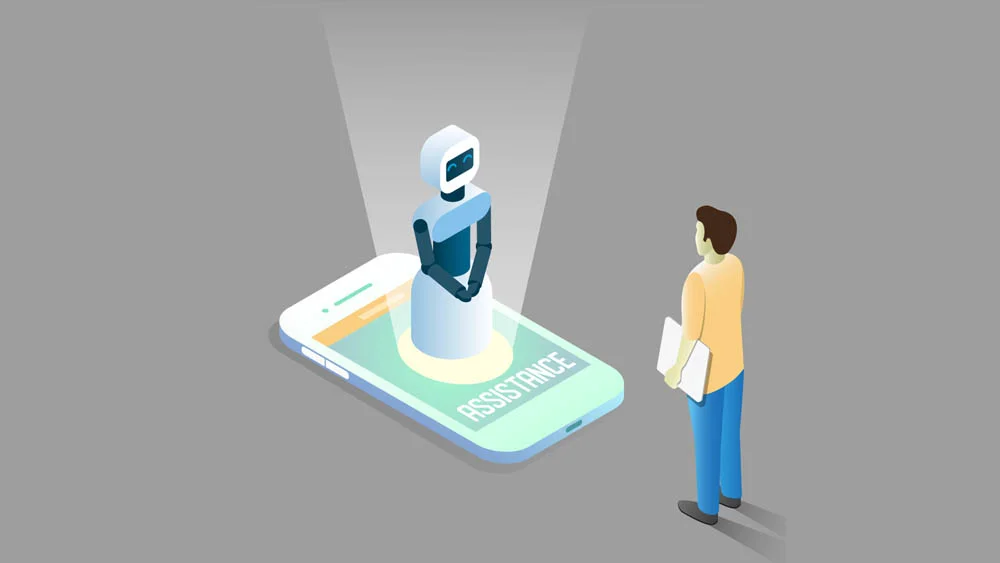In today’s fast-paced business world, where B2B collaborations are essential for success, making every interaction efficient and effective is key. That’s where virtual intelligence comes in. It’s a game-changer, using advanced technology to transform how B2B meetings work. In this article, we’ll explore how virtual intelligence applications is changing B2B interactions, offering lots of benefits for businesses that rely on partnerships.
Virtual intelligence combines cutting-edge tech like AI and smart algorithms to help businesses work smarter. We’ll take a closer look at how it does this, from analyzing data better to making meetings more personalized and communication smoother. We’ll also check out some real examples to see how companies are applying virtual intelligence applications to improve their collaboration and get ahead in today’s competitive market.
In short, one of the most crucial virtual intelligence applications is revolutionizing B2B meetings, and this article will show you how it’s making a big difference for businesses everywhere.
Understanding Virtual Intelligence
Virtual intelligence represents a groundbreaking fusion of artificial intelligence (AI) and virtual technologies, functioning as a catalyst for elevating human capabilities and refining decision-making processes within the intricate realm of B2B interactions. It operates at the nexus where cutting-edge AI algorithms intersect with virtual platforms, offering businesses an unprecedented toolkit to navigate the complexities of modern commerce.
At its core, virtual intelligence relies on a sophisticated arsenal of technologies, including natural language processing (NLP), machine learning (ML), and virtual assistants, to decode vast troves of data and extract actionable insights. By leveraging these tools, virtual intelligence systems not only streamline the flow of information but also enhance the quality of decision-making in B2B meetings. Through the lens of NLP, for instance, these systems adeptly decipher the nuances of human language, facilitating seamless communication and fostering deeper understanding among stakeholders.
Moreover, virtual intelligence applications goes beyond mere data analysis, employing advanced algorithms to optimize workflows and drive tangible outcomes in B2B engagements. Whether it’s automating routine tasks, predicting market trends, or personalizing interactions based on individual preferences, virtual intelligence acts as a force multiplier, empowering businesses to unlock new levels of efficiency and effectiveness in their collaborative endeavors. In essence, virtual intelligence represents a pivotal advancement in the evolution of B2B interactions, offering a transformative framework for driving innovation and fostering sustainable growth in today’s interconnected business landscape.
Transforming B2B Meetings
The infusion of virtual intelligence is reshaping B2B meetings into dynamic hubs of collaboration and innovation. Personalized insights, real-time analytics, and predictive modeling are empowering decision-making processes, while virtual assistants streamline administrative tasks, enabling participants to focus on strategic discussions. Augmented collaboration platforms, equipped with advanced communication tools, facilitate seamless information exchange, transcending geographical barriers. This metamorphosis not only boosts meeting efficiency but also fosters value creation and sustainable growth across industries. Additionally, the integration of sales incentive software further enhances collaboration among B2B partners by aiding in the tracking of discussed goals, facilitating smoother cooperation and alignment towards mutual sales objectives.
Personalized Insights
Virtual intelligence furnishes B2B meetings with personalized insights by analyzing extensive datasets. It generates comprehensive profiles of meeting attendees, encompassing their preferences, priorities, and pain points. Armed with this knowledge, participants can tailor their presentations and pitches to align with the specific needs and interests of their counterparts, thereby significantly enhancing the likelihood of successful outcomes in B2B partnerships.
Real-Time Analytics
Incorporating virtual intelligence enables real-time analytics during B2B meetings, allowing participants to monitor key metrics and performance indicators as discussions unfold. This capability empowers data-driven decision-making, facilitating quick identification of emerging trends, assessment of strategy effectiveness, and on-the-fly adjustments. Whether tracking audience engagement or evaluating proposal impacts, real-time analytics empower businesses to remain agile and responsive in dynamic meeting environments, thereby fostering stronger B2B partnerships.
Predictive Modeling
Virtual intelligence’s predictive modeling capabilities leverage historical data and market trends to forecast future scenarios and outcomes accurately, specifically tailored for B2B partnerships. In B2B meetings, this translates to informed decision-making and strategy development. Predictive models anticipate potential objections or negotiation hurdles unique to B2B collaborations, enabling participants to devise preemptive countermeasures and alternative approaches, thus fostering stronger and more resilient partnerships.
Virtual Assistants
Powered by virtual intelligence, virtual assistants are spearheading a revolution in B2B meetings, enhancing productivity and fostering deeper partnerships. These digital companions automate a plethora of tasks essential for fostering strong B2B relationships, from scheduling appointments and managing agendas to transcribing meeting minutes and analyzing relevant data. By taking on these administrative burdens, virtual assistants free up valuable time for participants to delve into strategic aspects such as idea generation, collaborative problem-solving, and relationship nurturing. This seamless integration of virtual assistants not only optimizes meeting efficiency but also cultivates an environment conducive to innovation and sustainable growth in B2B partnerships.
Augmented Collaboration
Virtual intelligence fosters augmented collaboration in B2B meetings by facilitating seamless communication and information sharing across disparate teams and locations. Through integrated communication tools and collaborative platforms, participants engage in real-time discussions, share documents and multimedia content, co-create solutions, and access meeting recording, irrespective of geographical barriers. This level of connectivity promotes innovation and cross-pollination of ideas, enhancing efficiency and leading to richer outcomes.
Overcoming Challenges
While the integration of virtual intelligence presents vast potential for enhancing B2B meetings, it also poses challenges. Businesses must address privacy and security concerns, ensure data accuracy and reliability, and mitigate the risk of over-reliance on automation. Moreover, prioritizing user-friendly and intuitive design is crucial to maximizing the adoption and effectiveness of virtual intelligence systems among meeting participants.
Looking Ahead
As virtual intelligence continues to evolve, its role in enhancing B2B content databases will grow in significance. From personalized insights to real-time analytics and predictive capabilities, the possibilities are transformative. By harnessing the power of virtual intelligence, businesses can unlock new opportunities, foster innovation, and forge stronger partnerships in an increasingly interconnected and competitive landscape.
In conclusion, virtual intelligence is revolutionizing B2B meetings, empowering participants with personalized insights, real-time analytics, and predictive capabilities. By leveraging these technologies, businesses can enhance collaboration, drive productivity, and achieve better outcomes in their interactions with partners, clients, and stakeholders. Embracing the era of virtual intelligence, the future of B2B meetings shines brighter than ever before.





